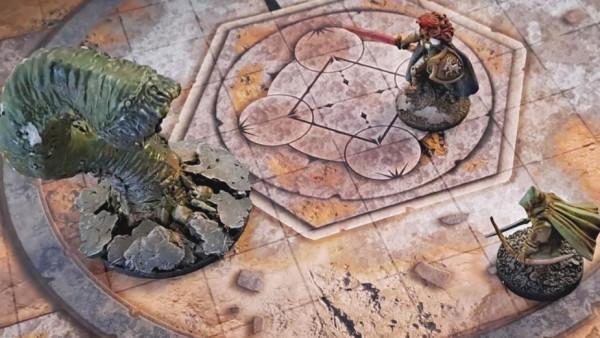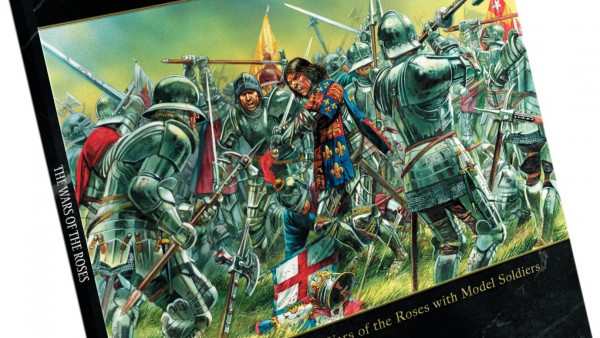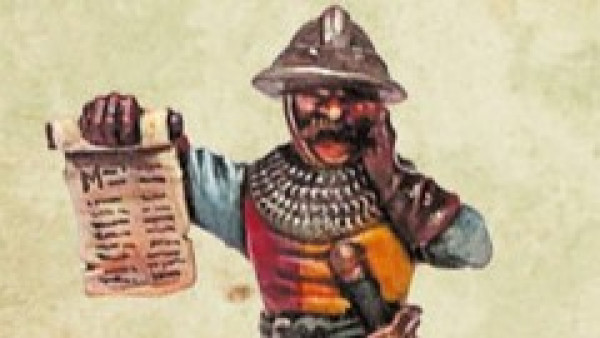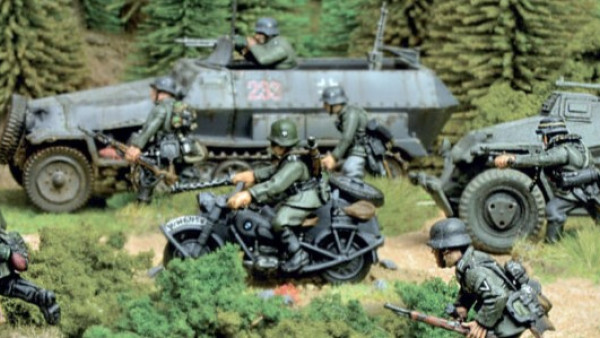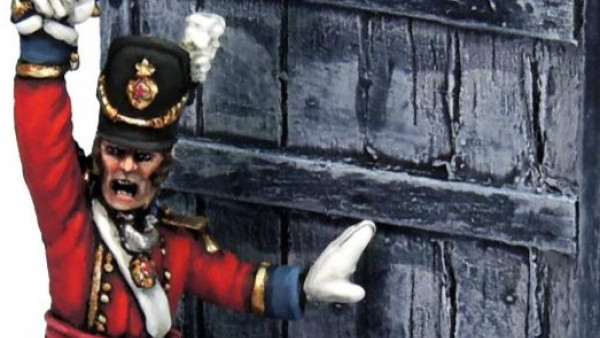Home › Forums › News, Rumours & General Discussion › BreTONEia › Reply To: BreTONEia
Well, I’m not usually one for absolutism this is an English word, not French. It’s a modified form of Britannia based on the Frankified form of Bretagne. There absolutely IS a grammatical (or perhaps phonetic?) rule in English regarding double consonants. Where we add a suffix to a word (for example, “ed” or “ing”) English adds a double consonant to protect the vowel sound (stop-stopped-stopping). I have wracked my brain over this and I can’t find any exceptions. I am not saying that there aren’t any only that I can’t find any exceptions (because there usually are) but their frequency of occurrence is low enough to assume that the word Bretonnia follows the rule. Breton is the root word here denoting a people, “ia” is a suffix applied to the word to denote the country belonging to those people, thus BretonNia. There is also a word in English that has the exact same phonetic structure with only a couple of vowels switched out.
- Britannia
- Bretonnia
Those two words should follow the exact same phonetic structure. So I think there absolutely is a correct way to say the word but the convention currently defies that rule. There is a rule at play here which determines a correct pronunciation and that isn’t really something that is even debatable. What is interesting is how, when and why people break the rule or expect it to be broken.
To me this sounds like an Americanisation, where using the long vowel sound rather than the short vowel sound and generally elongating vowels much more common place. We actually describe some American accents (and also Australian) as having a “drawl”, which often makes the speech sound slower than it is by emphasising certain sounds (by extending the vowel) and de-emphasising others. However this applying an accent to a word rather than the correct pronunciation – much like the mythical Cockney Bazza from the pub hypothetical pronunciation of a word – and doesn’t actually denote the correct way to say a word, only the way a certain group of people pronounce a word. Dialects and accents tend to throw grammatical rules out of the window. There’s a place not far from me called Slaithwaite and I 100% guarantee that unless you come from around that area, in your head you just said it wrong saying because the word is a Yorkshire word and is pronounced as Slowwitt (as in ow). From an English perspective the official pronunciation is absolutely utterly nonsensical as there are zero rules that facilitate that conclusion. Assuming that it was always spelled that way, it was, at one time or other, probably pronounced that way. However in the dialect of the people it has a different pronunciation entirely and that has become the accepted convention (even the station announcements on trains use it)
So that’s what I think this is – it’s an Americanisation of the word, perhaps not deliberate but an Americanisation non the less. But the word wasn’t written by people who speak the American dialect and the people who originally invented the place (I dunno who that was, but East Midlands is really famed for a particular dialect) they also likely didn’t speak with a dialect would modify the pronunciation.
Something else that’s quite interesting here is the variety of opinions from their geographic locations.
@elessar2590 is (I think Australian) and to his ear “tone” is the correct sound – stands to reason given the Australian dialect.
@wolfie65 is, I think, from the USA based (if I am wrong I apologise) but thinks it should be “tonn” – this I find very interesting as it seems to run against typical American accents (and American is also the accent that most non native English speakers tend to pick up when they learn English). However, not wanting to make assumptions, there is quite an interesting thing about the American perception of British accents that we don’t always appreciate here in Britain. To an American ear, or someone with an ear for American accents, British accents, especially regional ones, actually end up sounding “exotic” in the way that American accents do to the British ear. So it stands to reason that potentially Wolfie might subconsciously WANT that word to fit with a preconceived notion of Britain and thus his mind imposes that expectation.
@blinky465 is from the South of England (I don’t wish to assume London) and also supports “tone” – I couldn’t say why but perhaps because he hasn’t ever heard it said any other way, especially seeing as current GW promotional material backs up this pronunciation. Familiarity is a huge part of what sounds “correct” and this may also apply to myself.
I live in the North of England where we tend towards the opposite of the American accent and words sound quite broad because we lean on and often emphasise the short O sound (ask a Yorkshireman to say the name of his home county). So not only do the rules of English spelling and phonetics suggest that the correct pronunciation would be “tonn”, I live in an area predisposed to using the short sound of the word anyway. And given that I started my interest in Bretonnia sometime around 1991, my pronunciation comes purely from the reading and I would say I never heard anyone else say the word until the late 2000’s when I returned to the hobby and bought a Bretonnian army.
So we have 4 people there, 2 from two from England itself and two from elsewhere but the view of pronunciation cannot be said to be split along any observable lines.
So while I would still maintain (and always will) that there is a correct way to say the word (the way it would be said using Received Pronunciation), I can absolutely understand why different conclusions are drawn and that in many cases that pronunciation is actually an accent rather than a mispronunciation. just try saying it in a different UK accents and see how it turns out! It sounds very different in a Scouse accent (which probably leans towards “tone”) to a Brummie accent (which leans towards “tonn” but elongates the o) to a Geordie accent (which probably uses the short “o” but with no elongation and likely drops the “t” in favour of a glottal stop), but the reading is the same.





























![How To Paint Moonstone’s Nanny | Goblin King Games [7 Days Early Access]](https://images.beastsofwar.com/2024/12/3CU-Gobin-King-Games-Moonstone-Shades-Nanny-coverimage-225-127.jpg)






















